Sunday, December 15, 2019 -
The next day we traveled by bus an hour or so out into the countryside where live re-enactments of the battle were conducted on a farm across several hundred acres. There were thousands of people on the hillside watching as blasts from explosives, canons and guns were fired. It was hard to see the action from such a distance but some of Cal's best photos came from this battle re-enactment.
The next day we traveled by bus an hour or so out into the countryside where live re-enactments of the battle were conducted on a farm across several hundred acres. There were thousands of people on the hillside watching as blasts from explosives, canons and guns were fired. It was hard to see the action from such a distance but some of Cal's best photos came from this battle re-enactment.
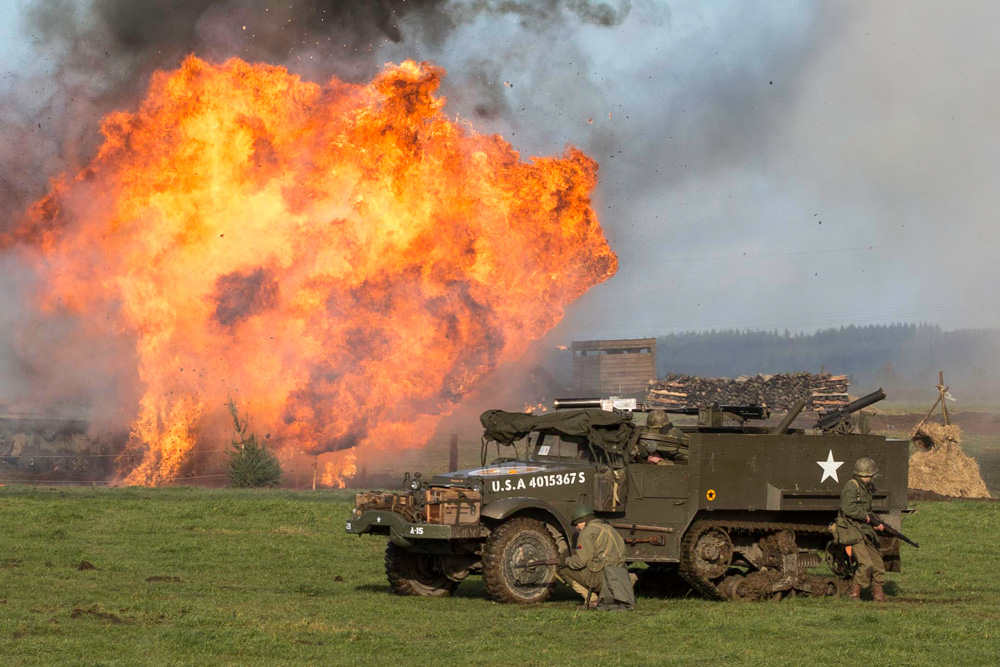
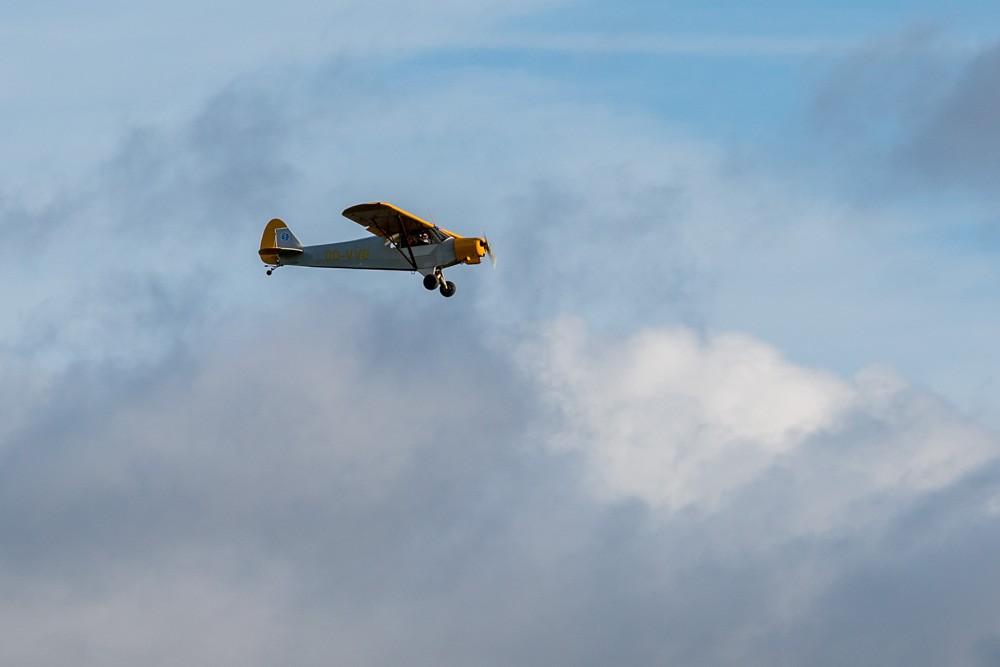
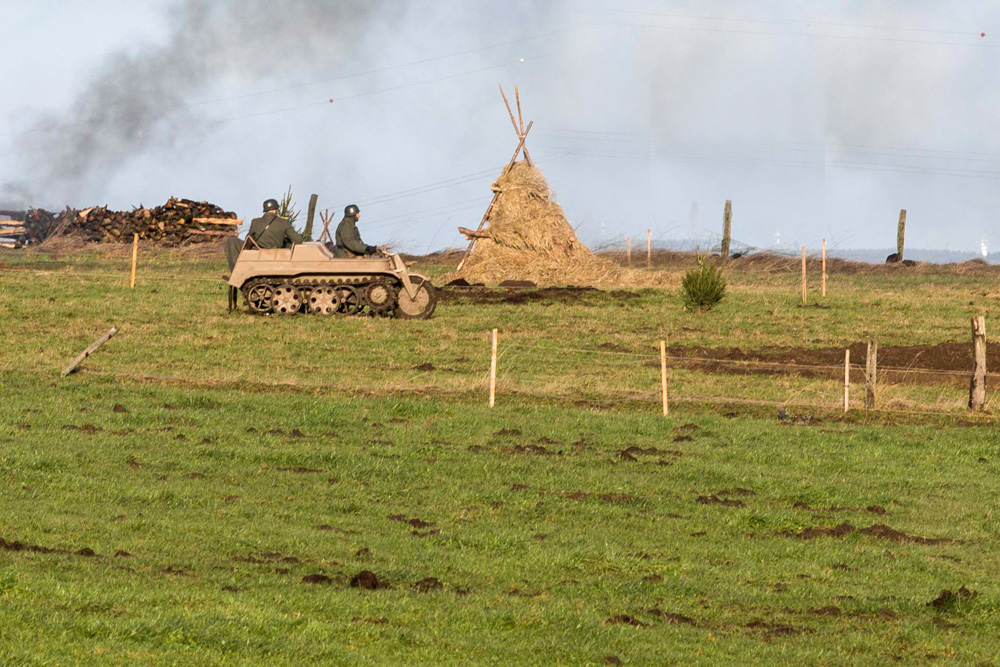
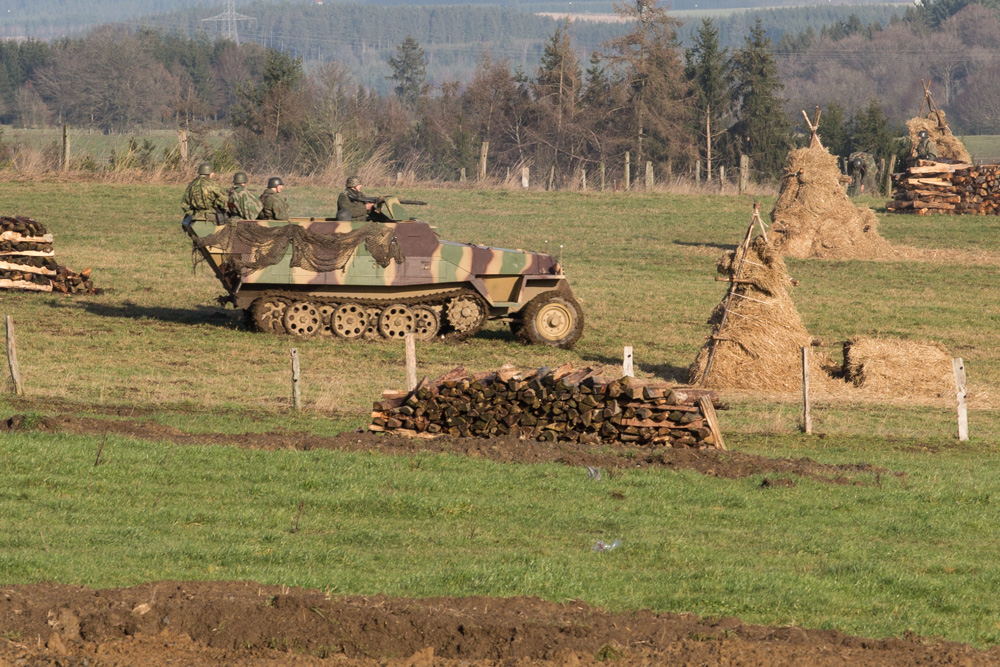
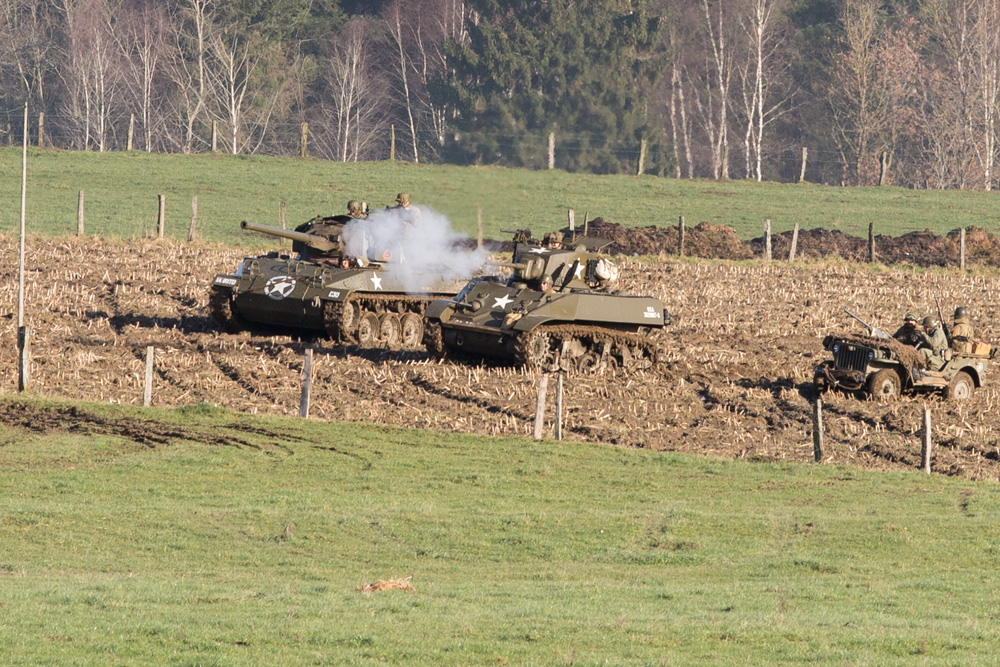

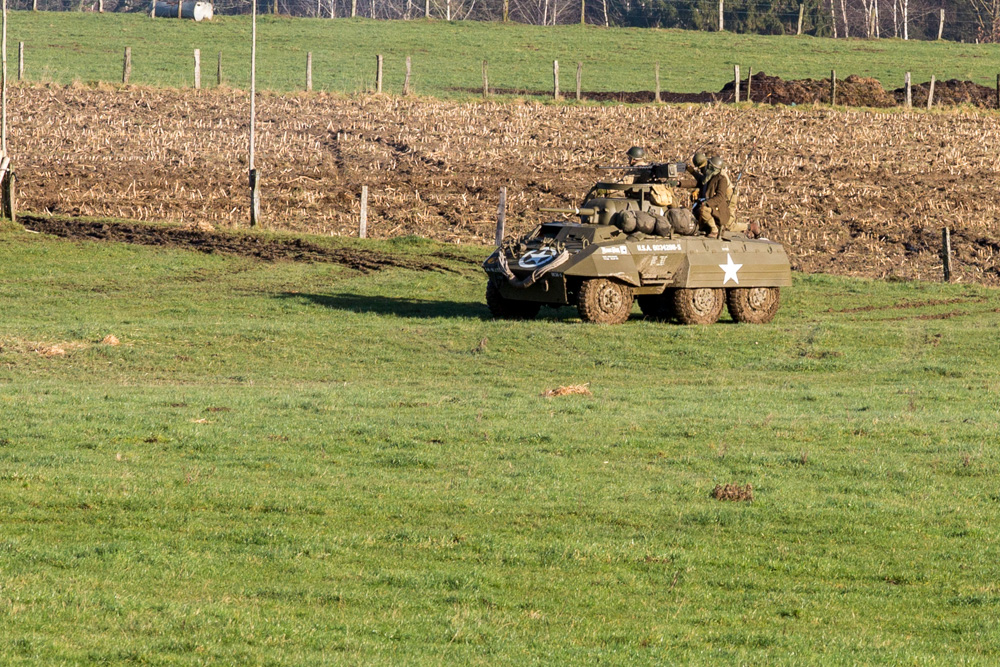
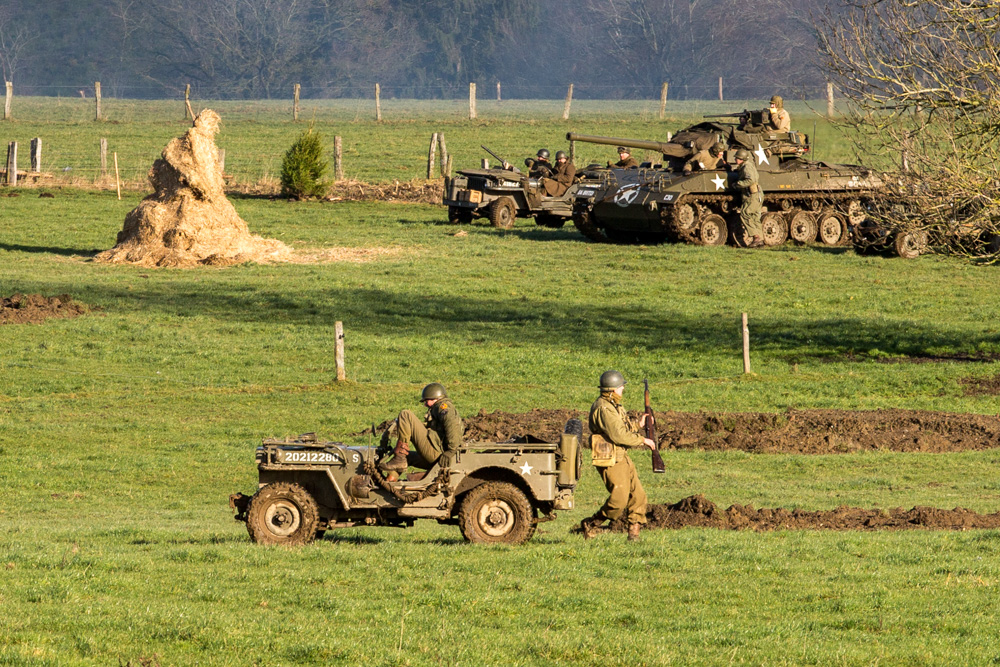
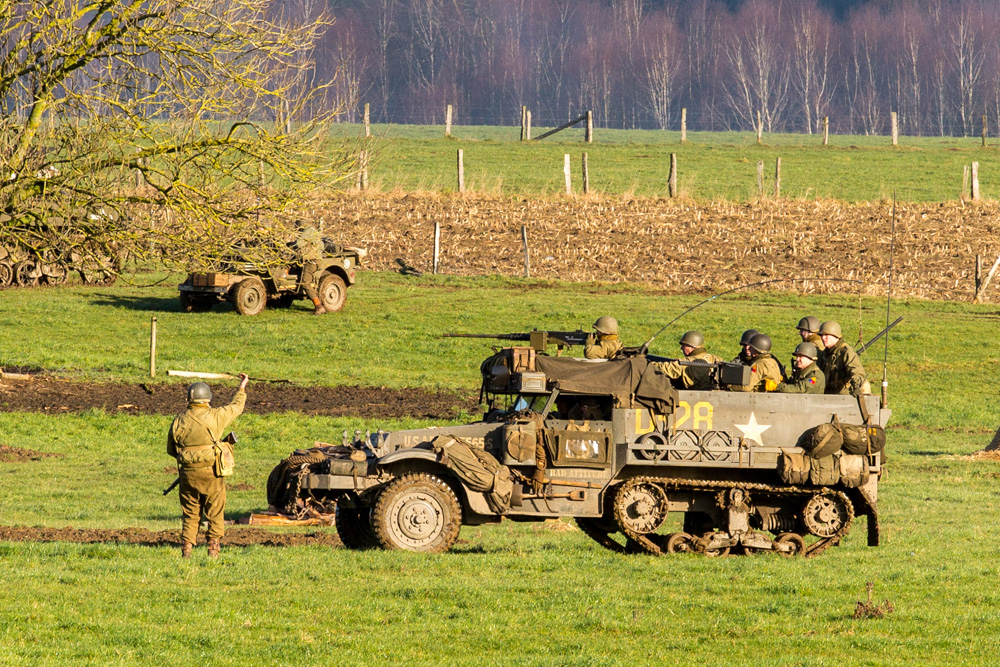
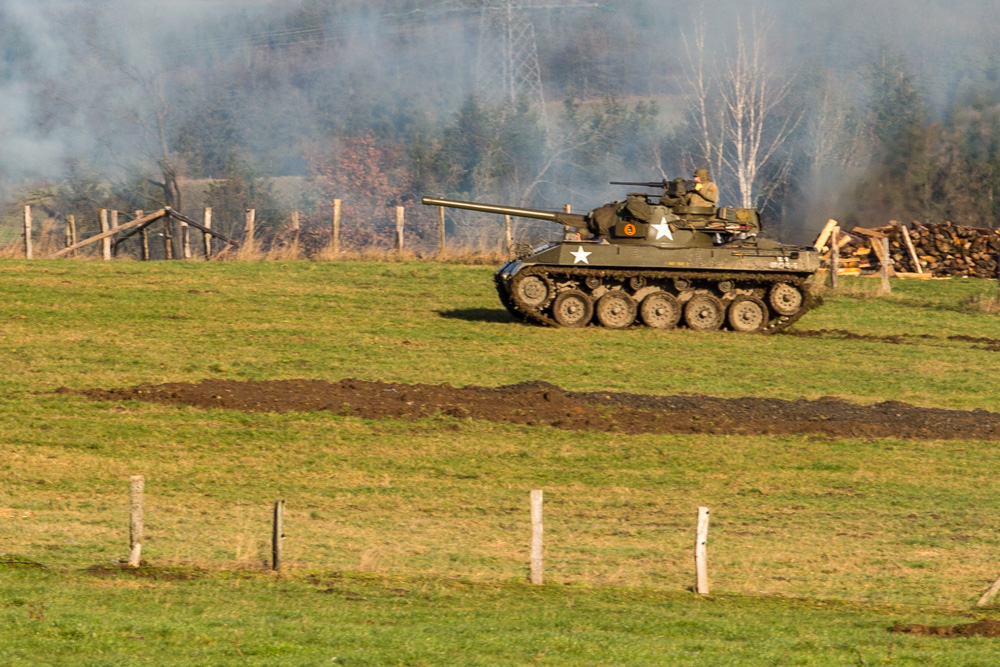
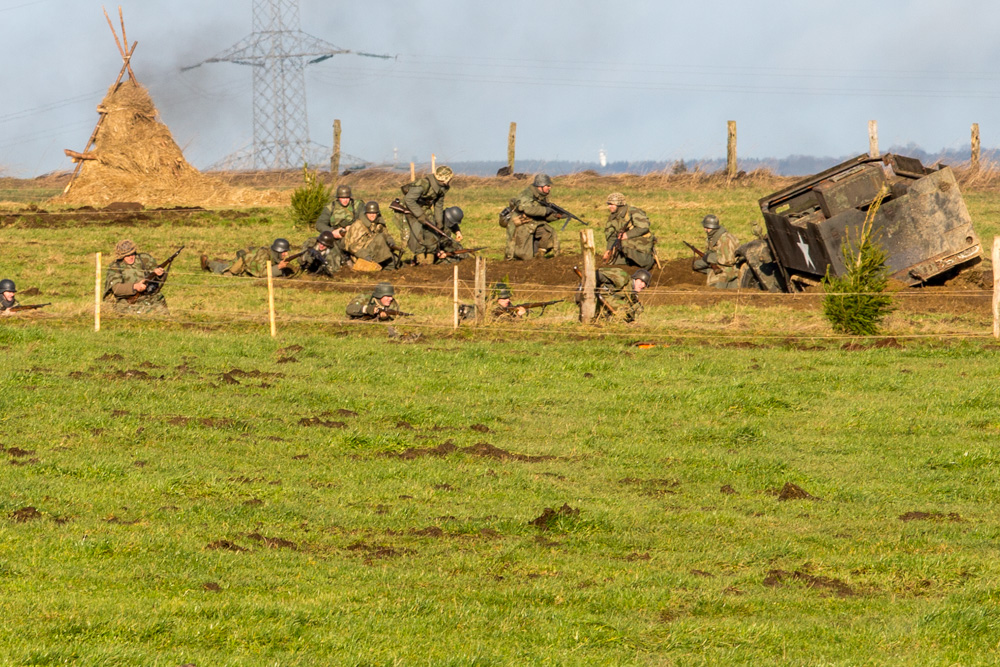
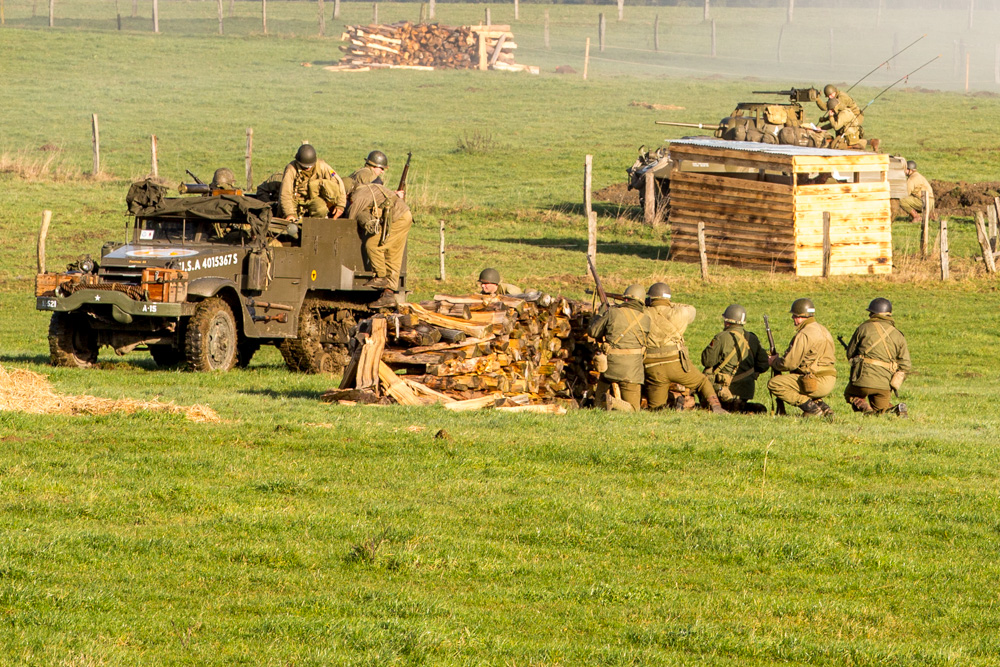
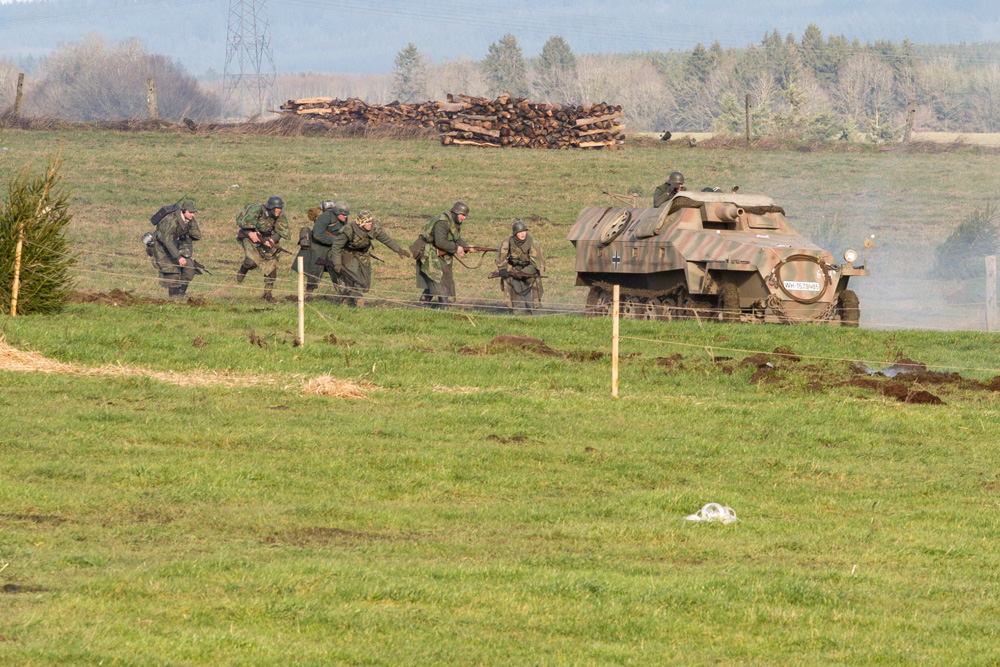
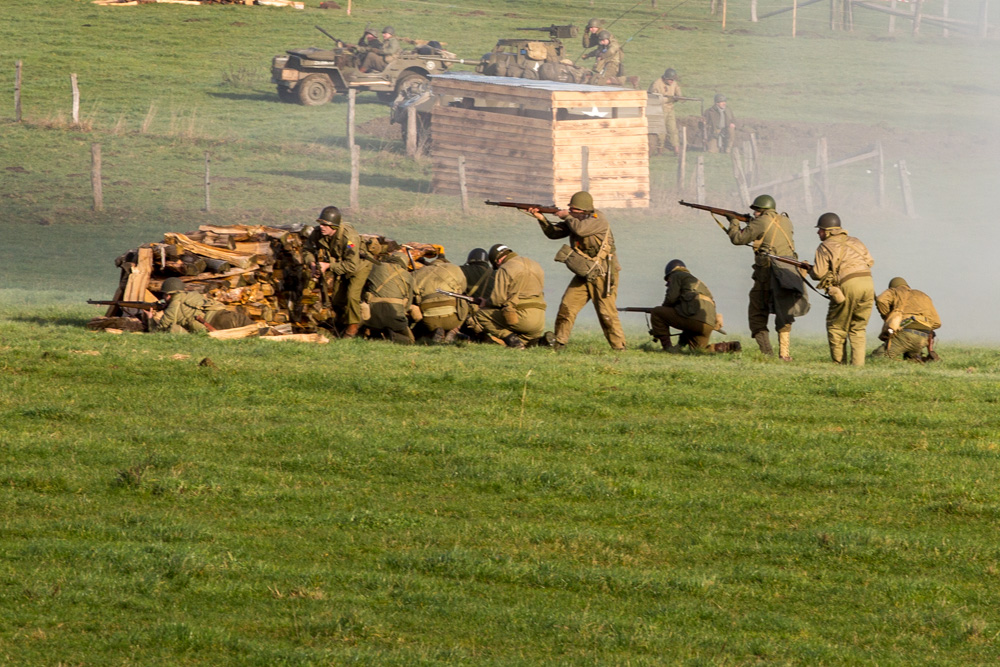
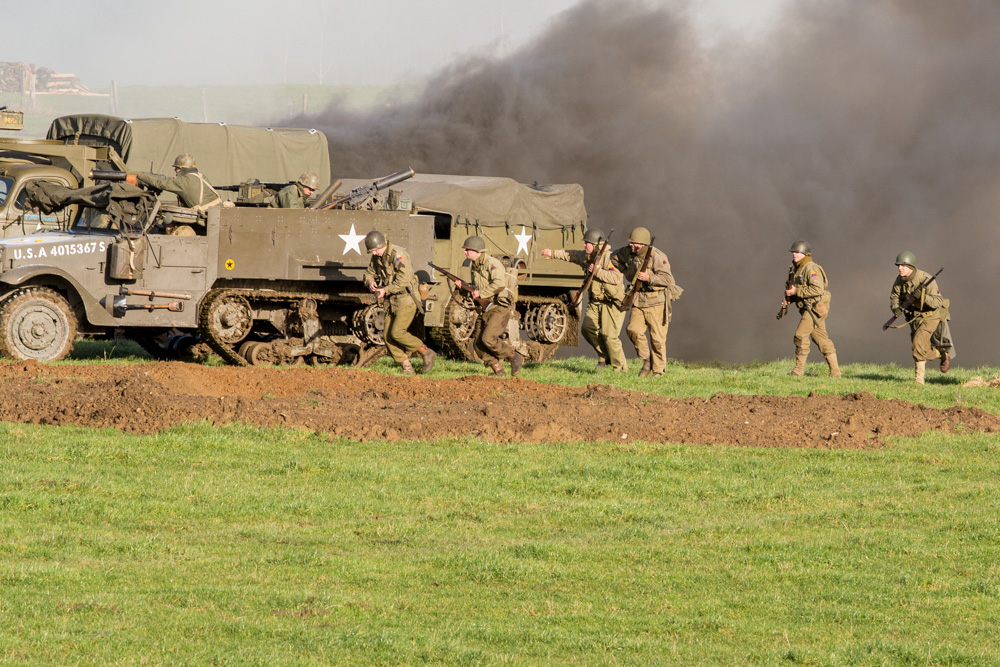
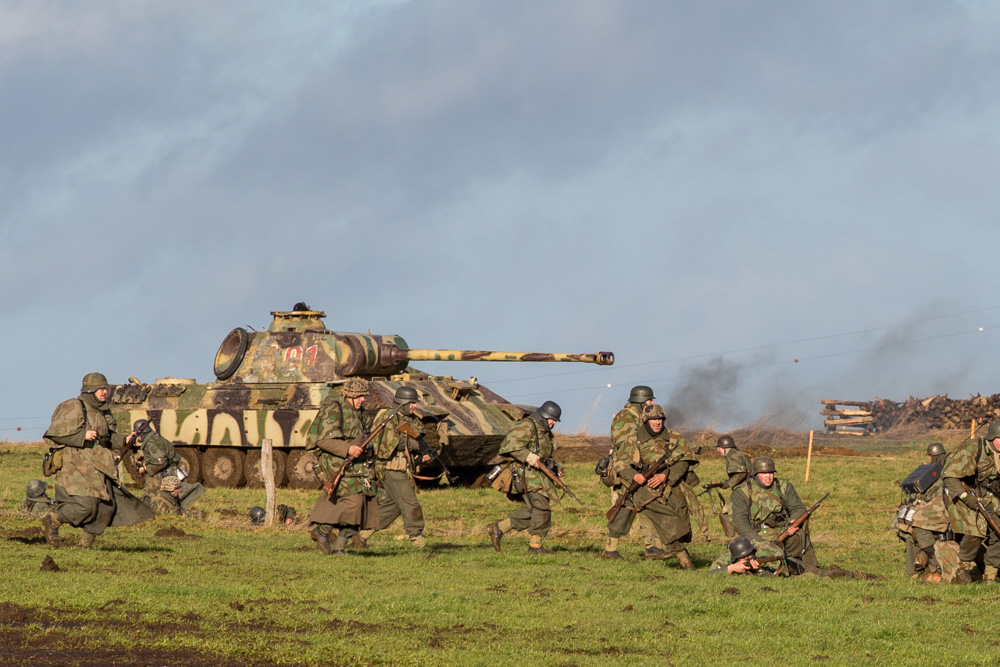

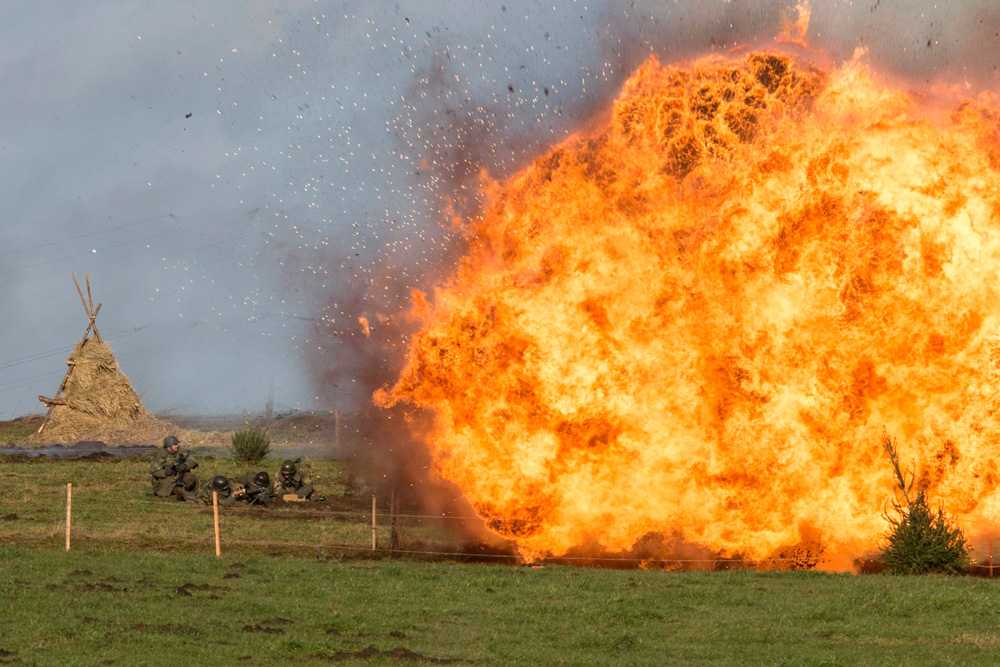
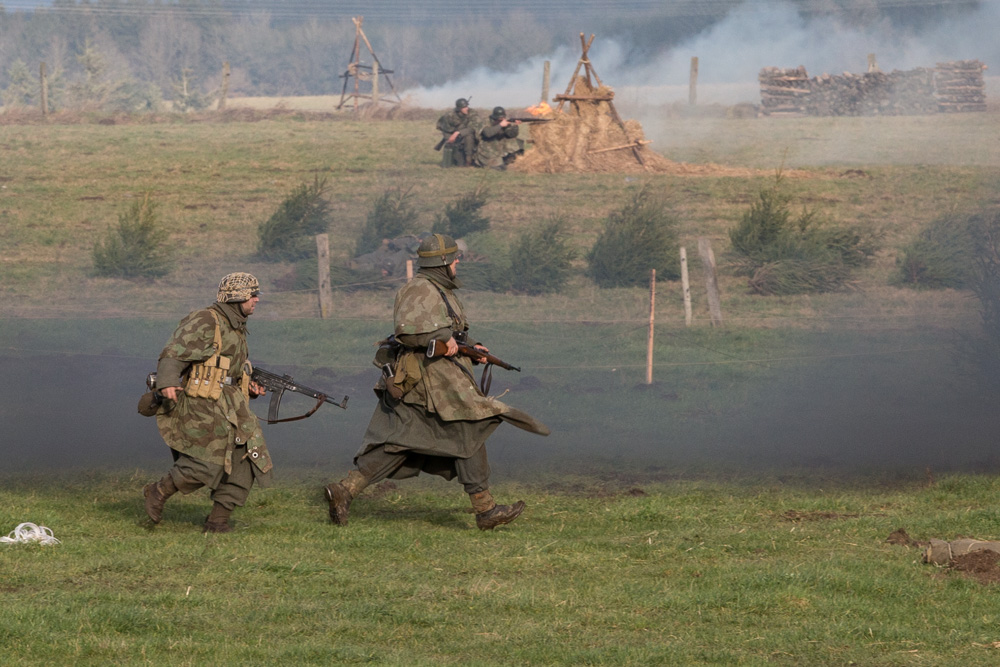
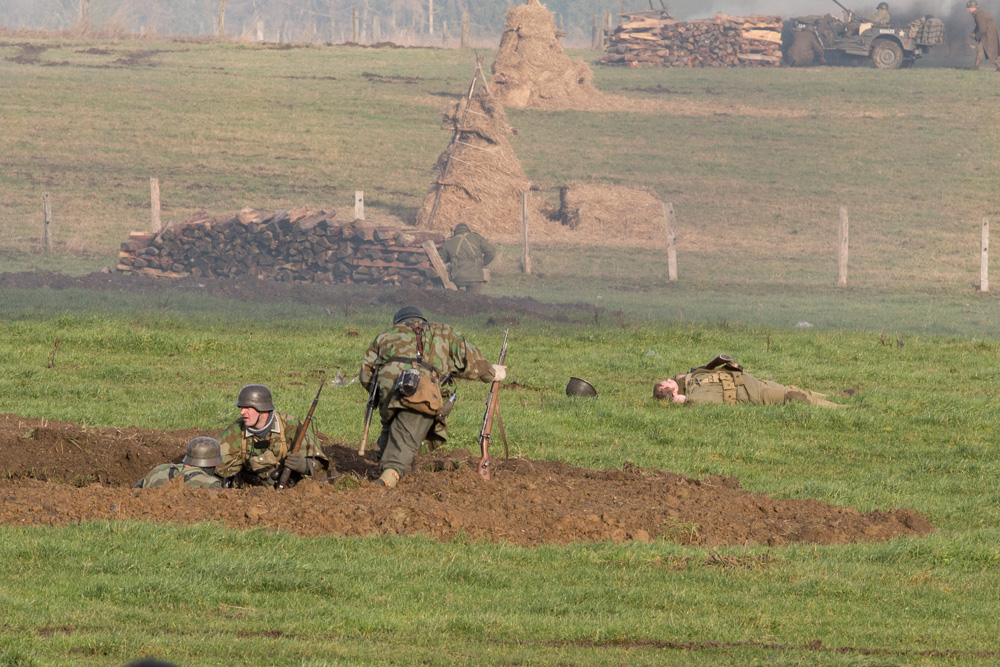
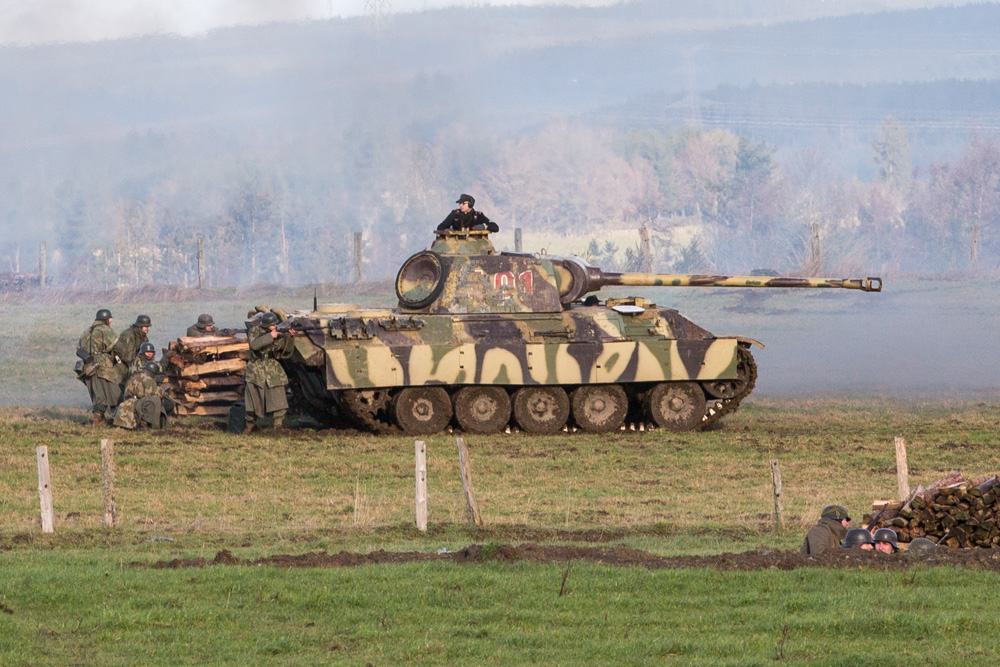
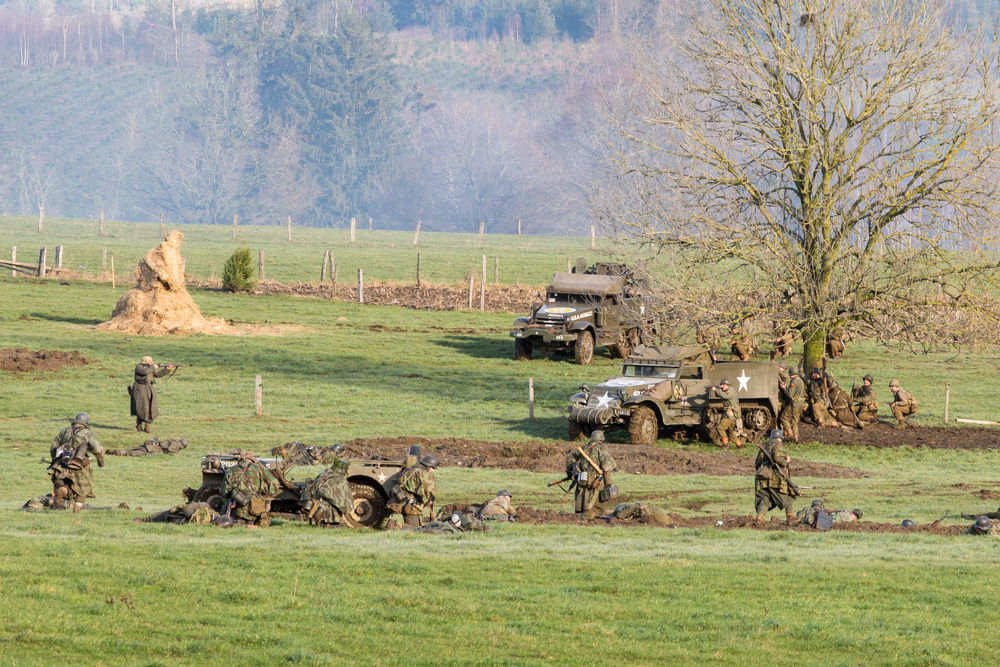
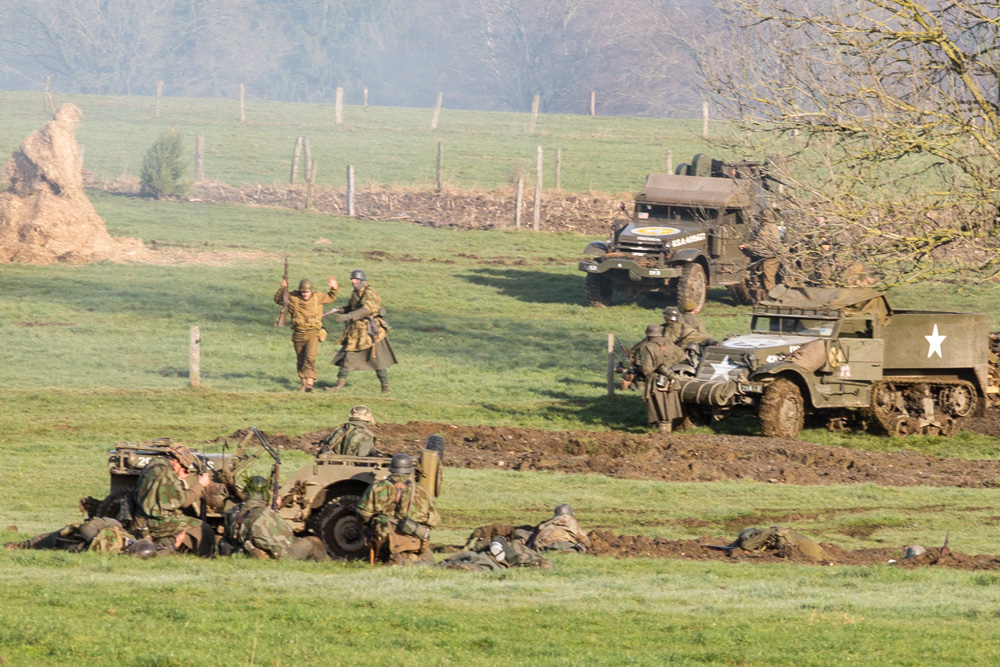
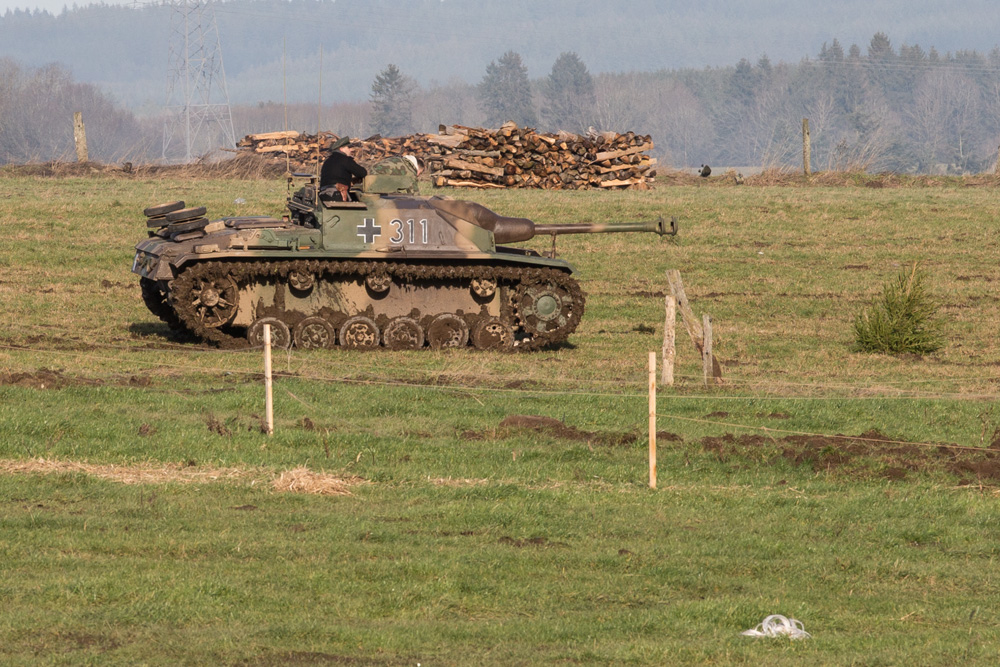
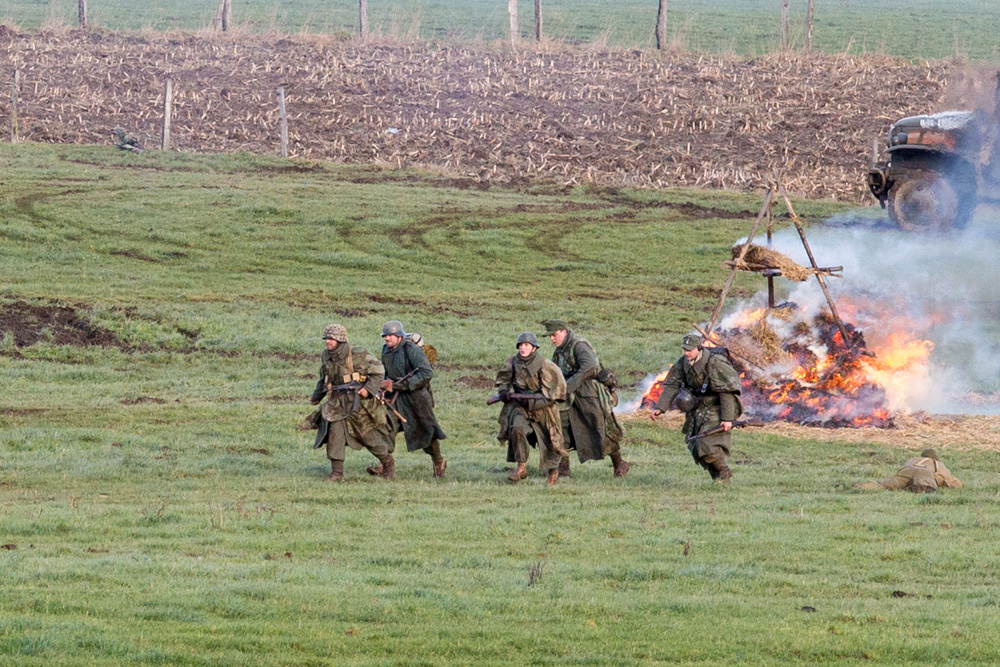
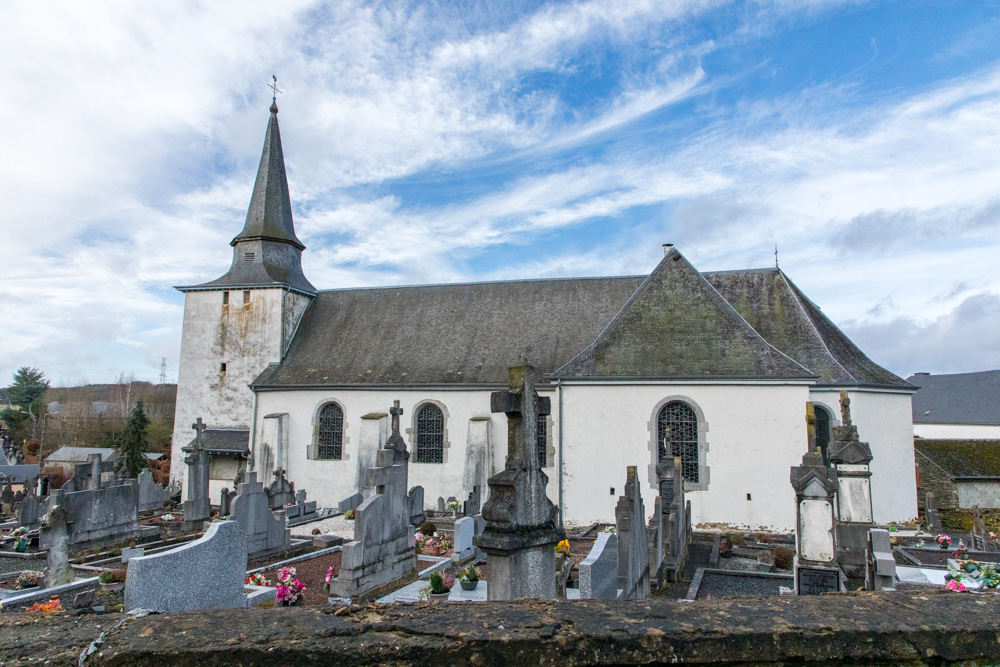
Cemetery of Bastogne at Rachamps.

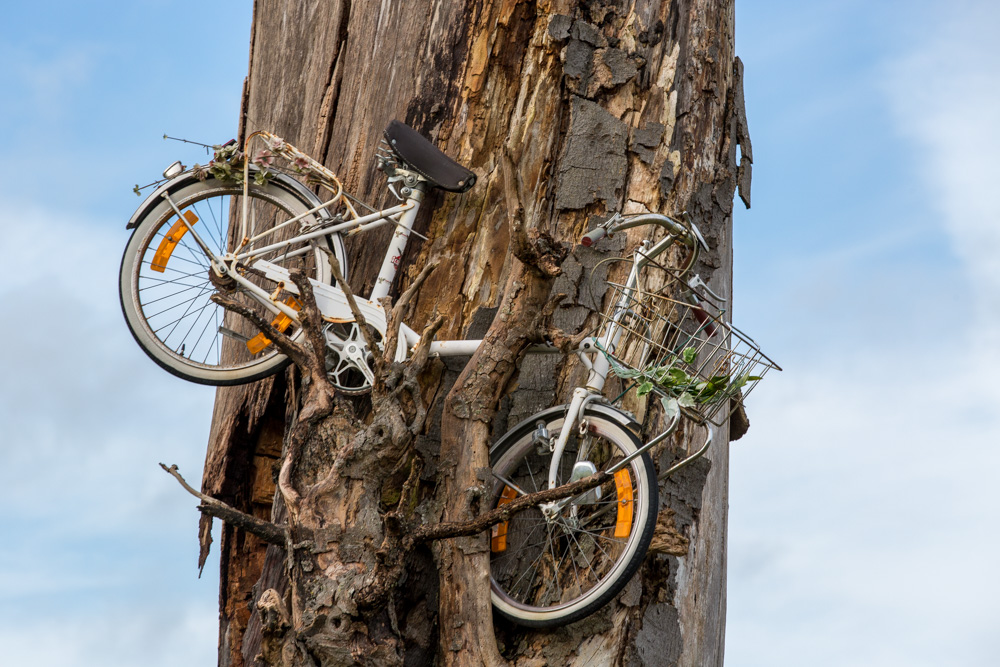
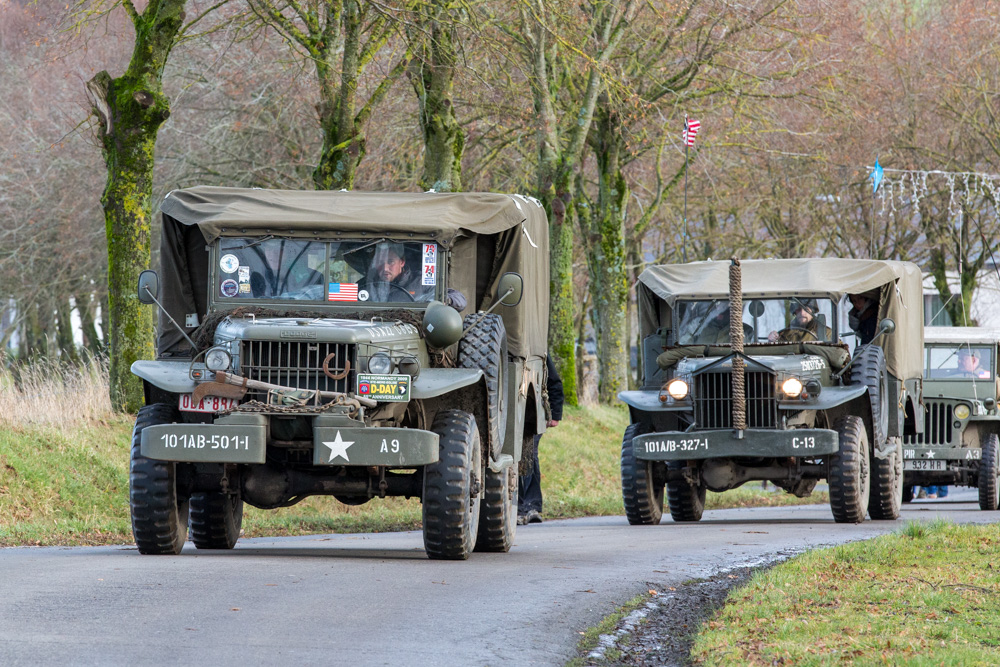

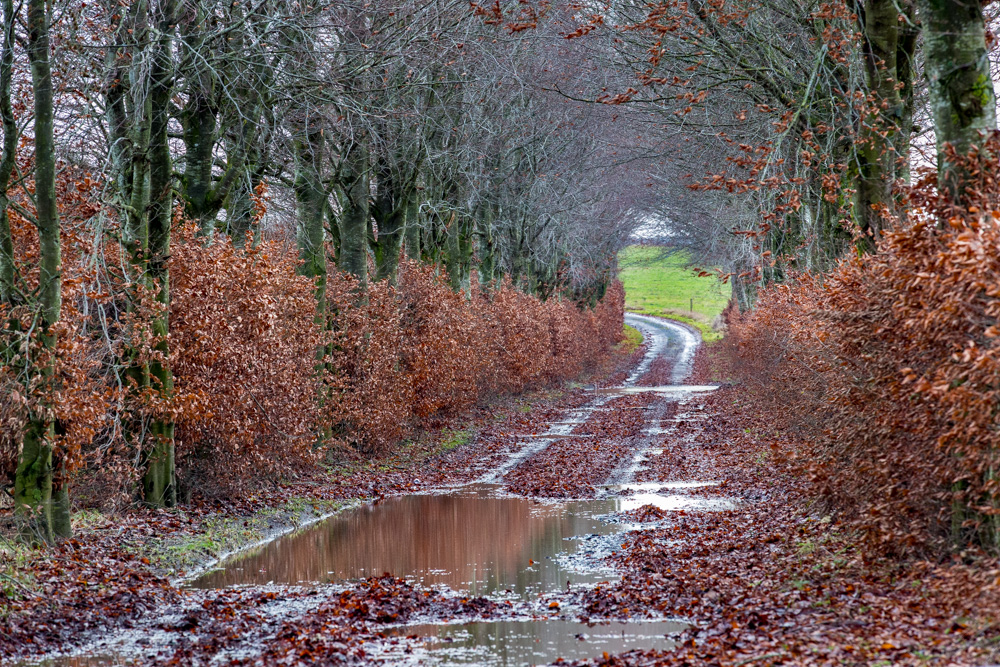
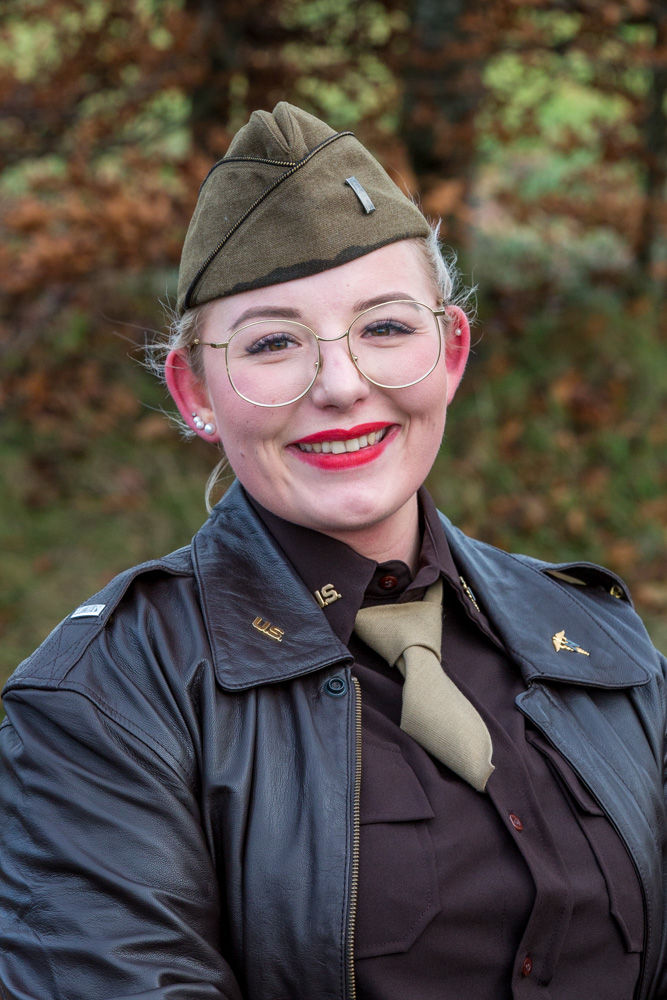
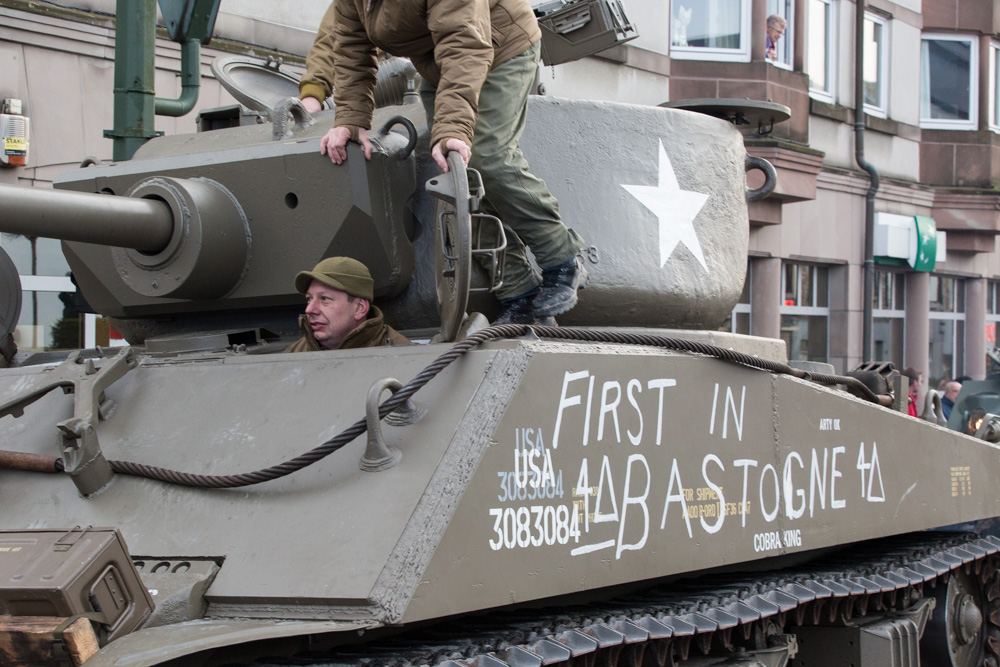
This is a Sherman tank leading the parade.
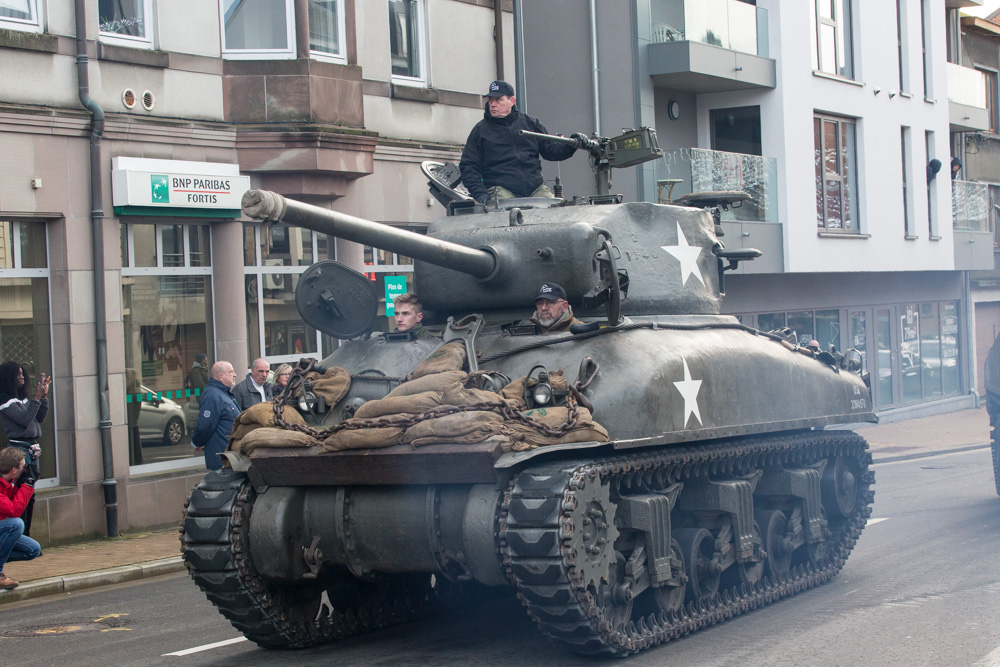
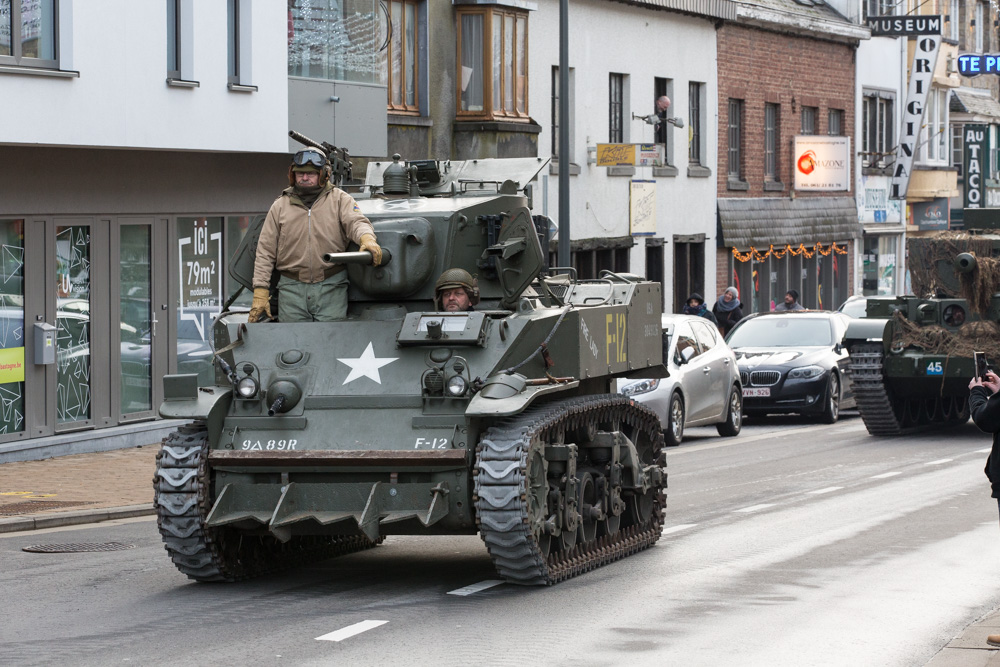
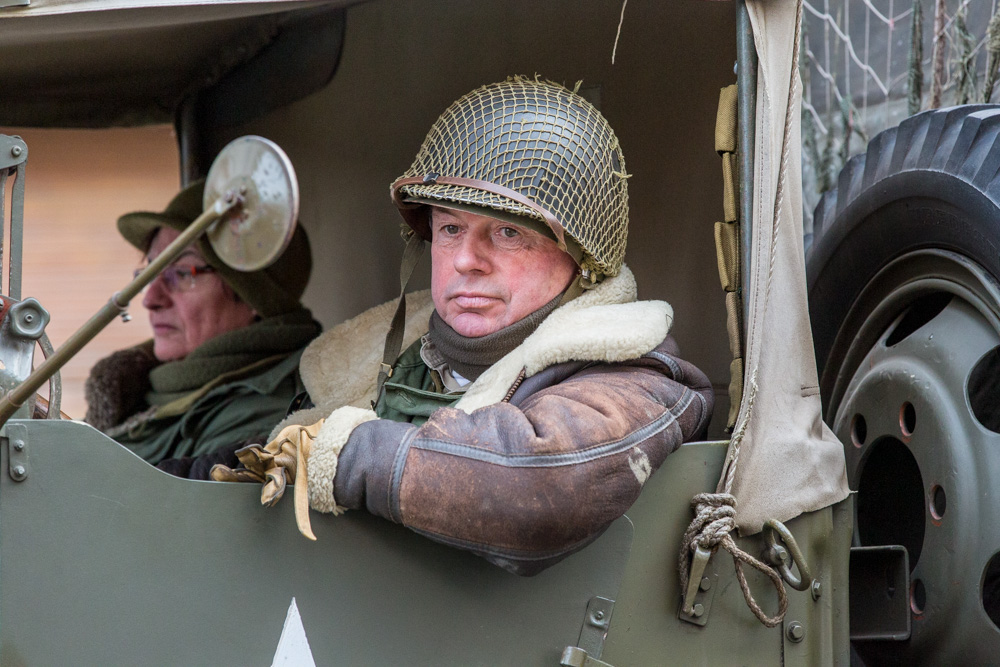
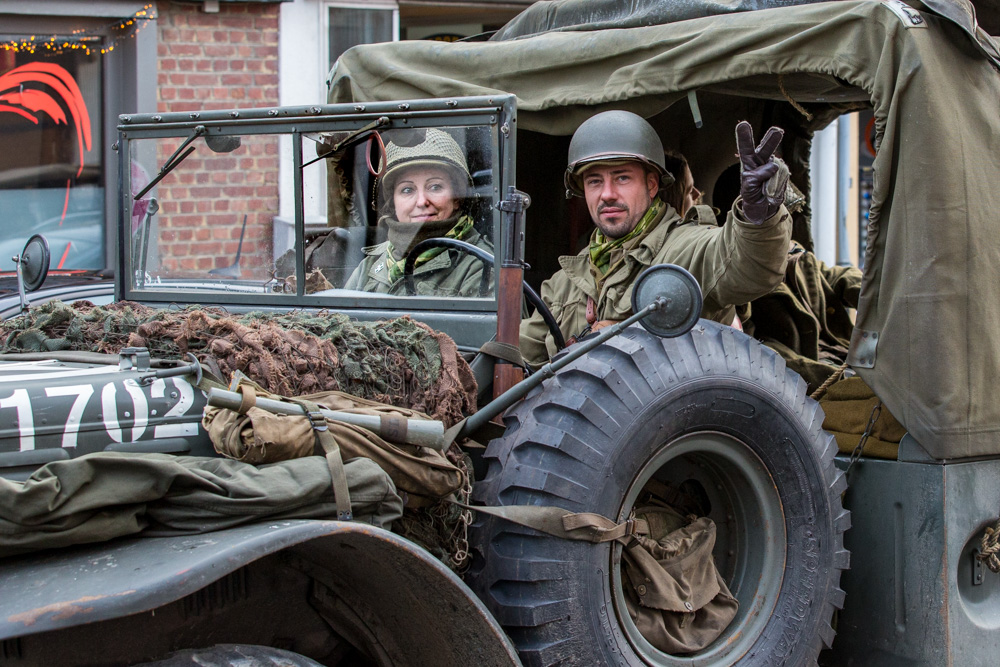
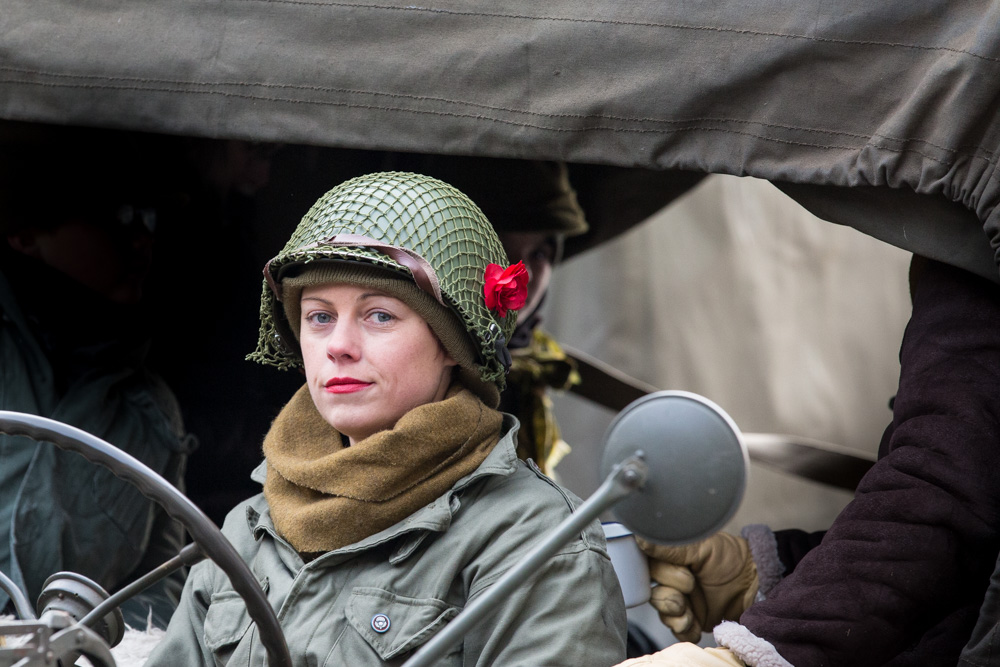
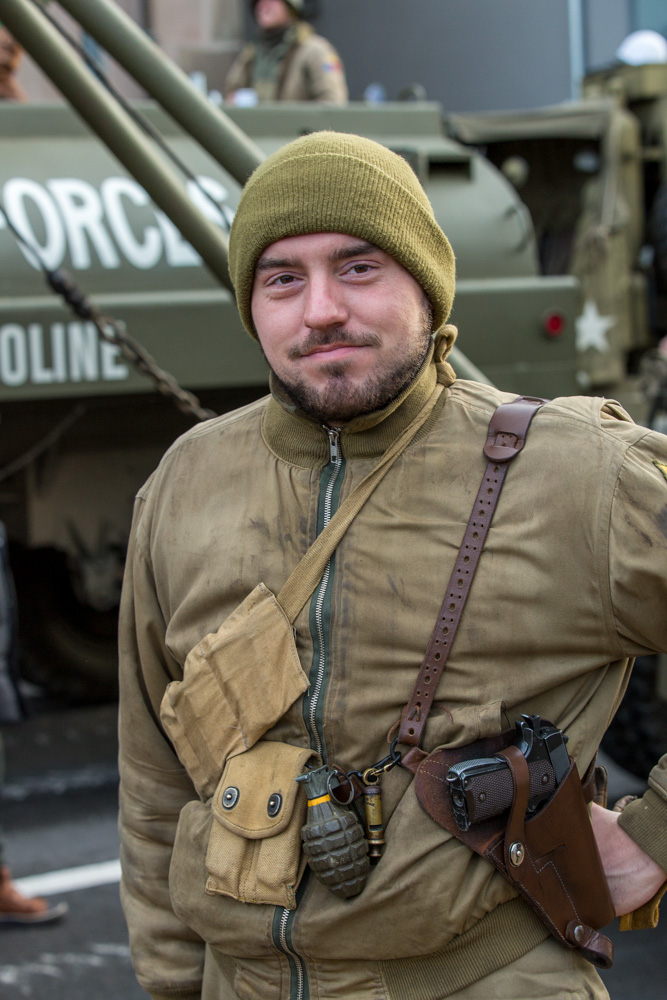
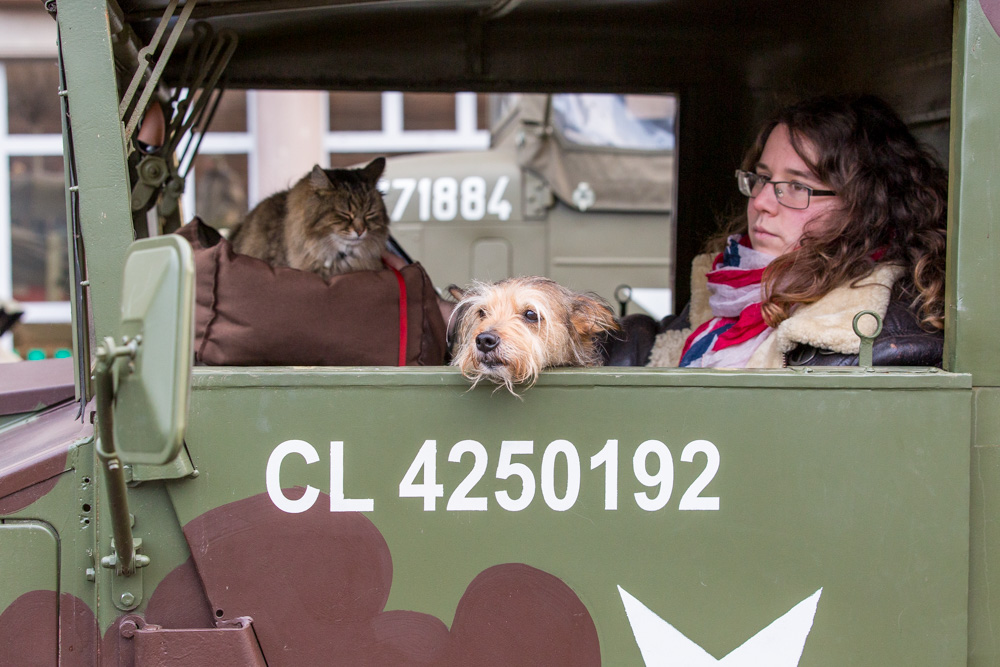
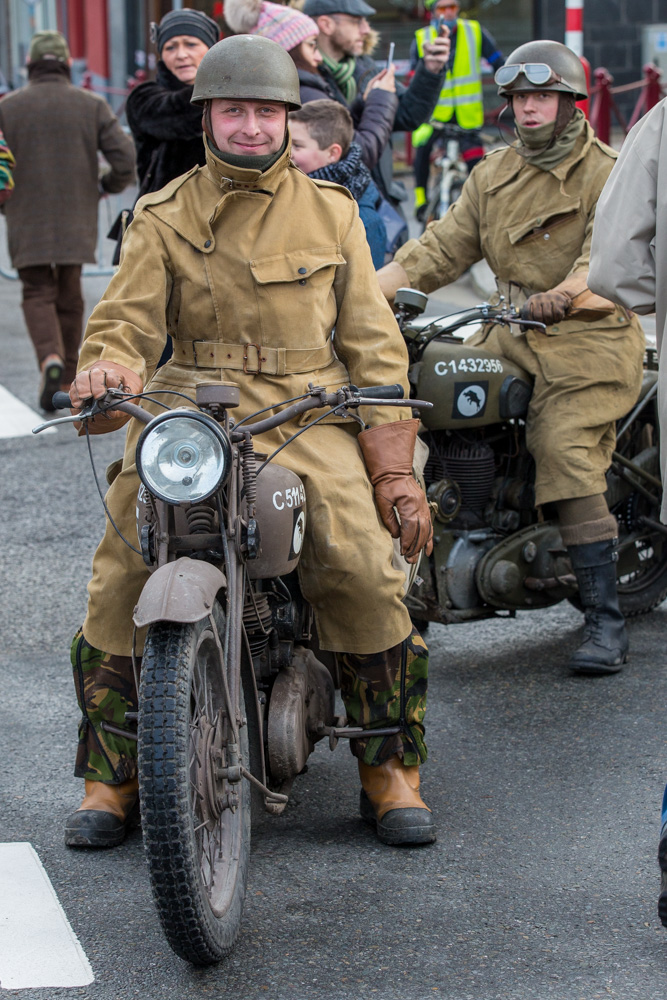
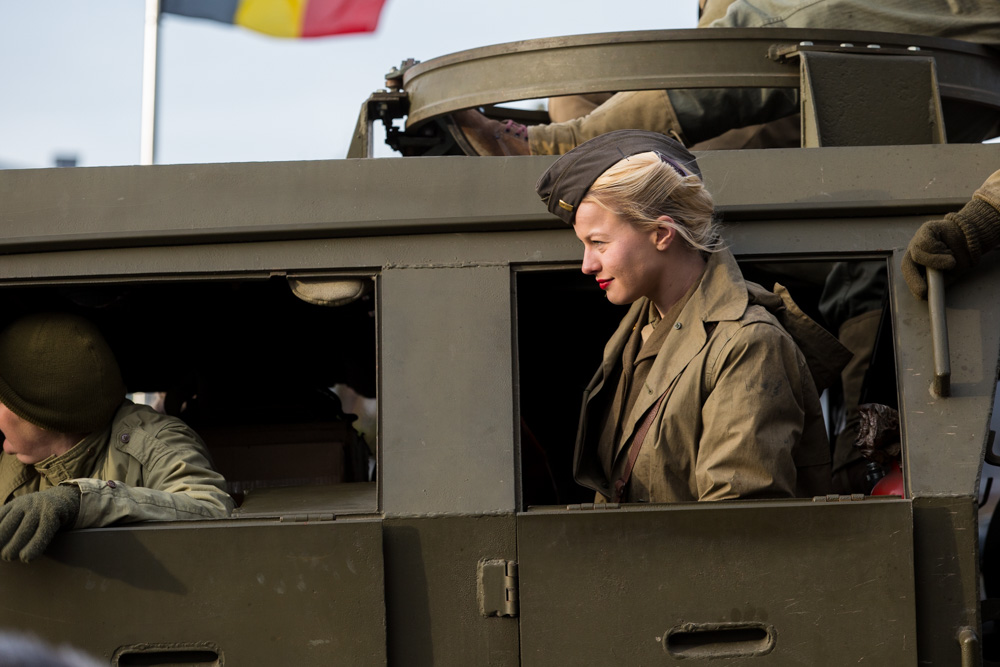
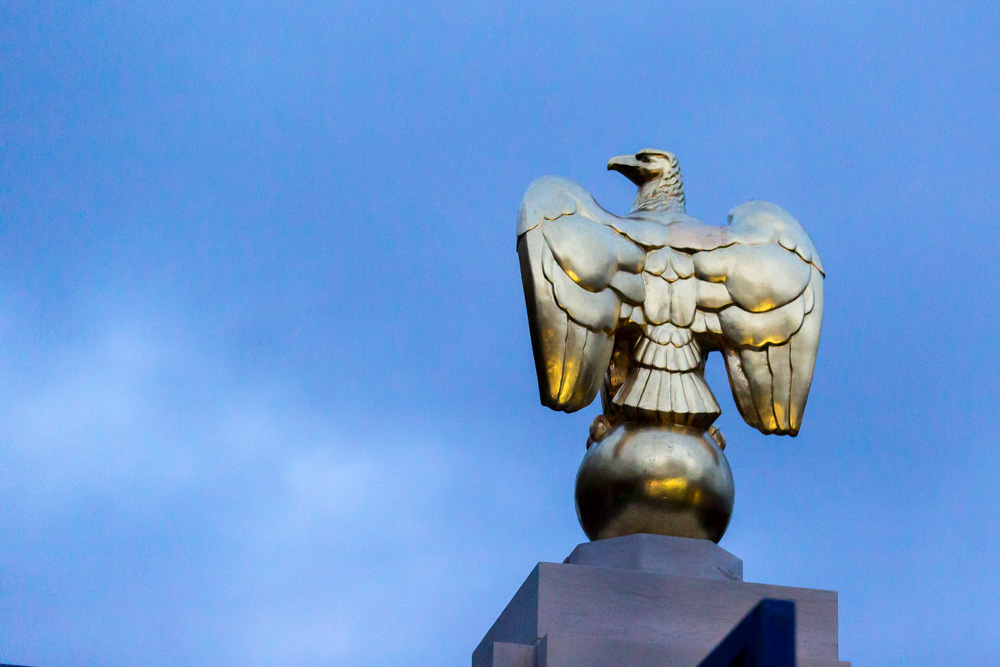
Luxembourg American Cemetery was established on 29 December 1944 by the 609th Quartermaster Company of the U.S. Third Army while Allied Forces were containing the Germans during the Battle of the Bulge.
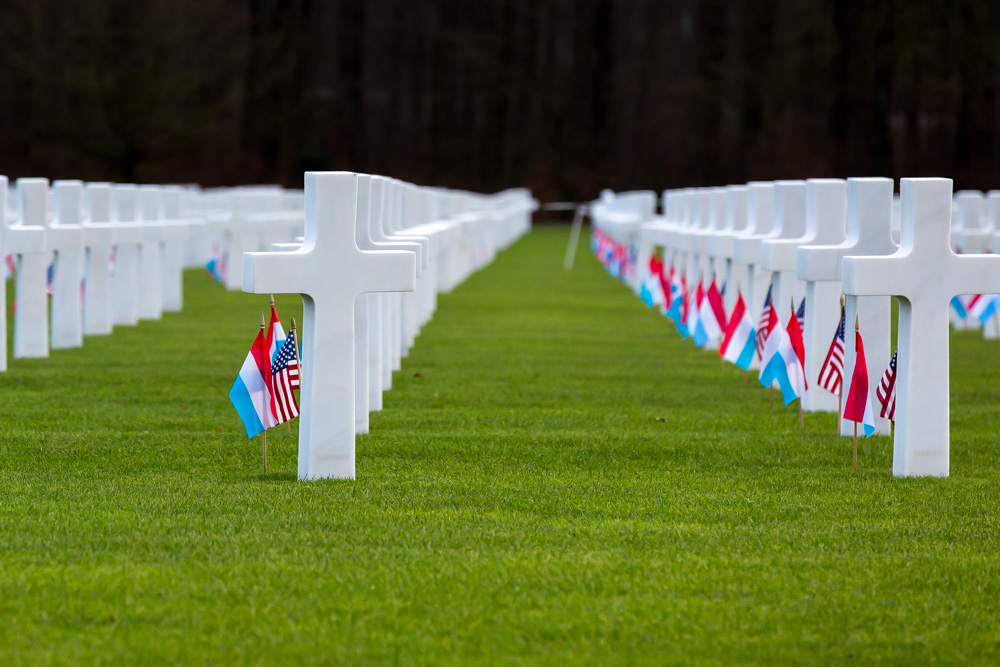
During the 1950s, the original wooden grave markers were replaced with headstones made of white Lasa marble.
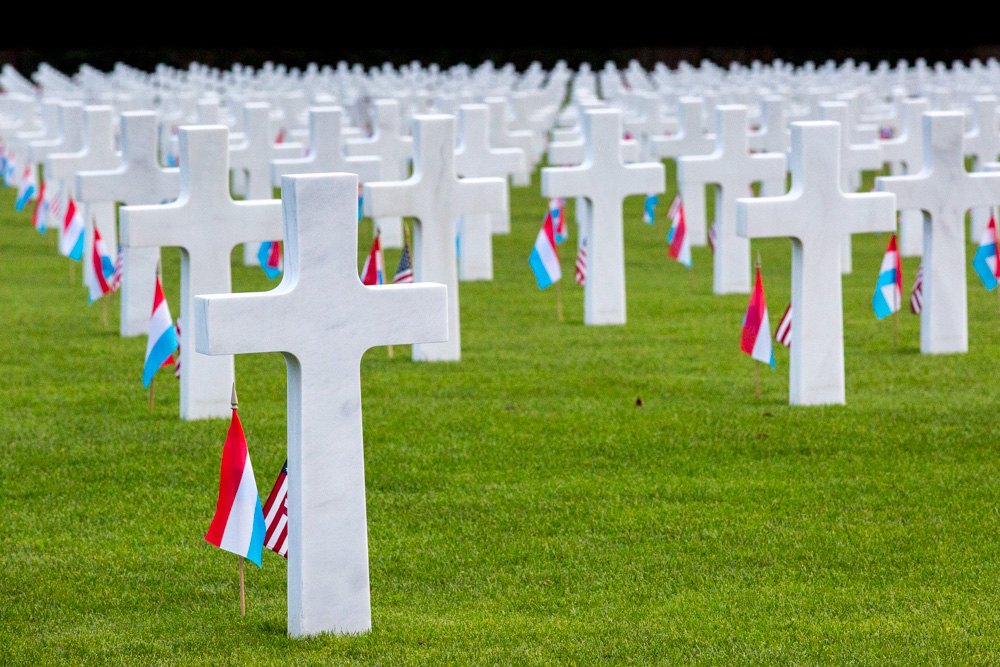
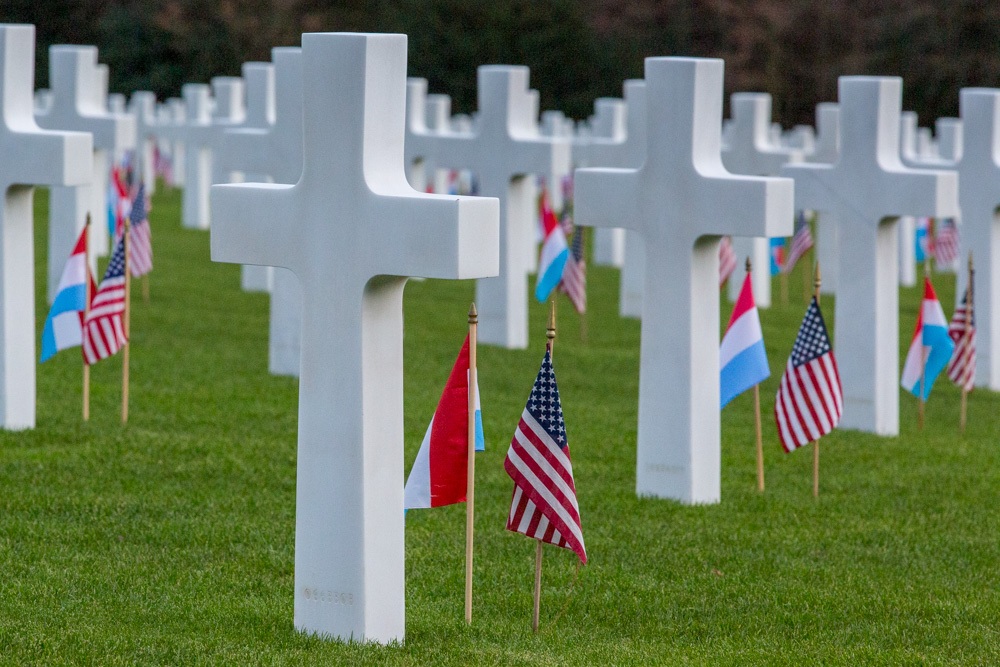
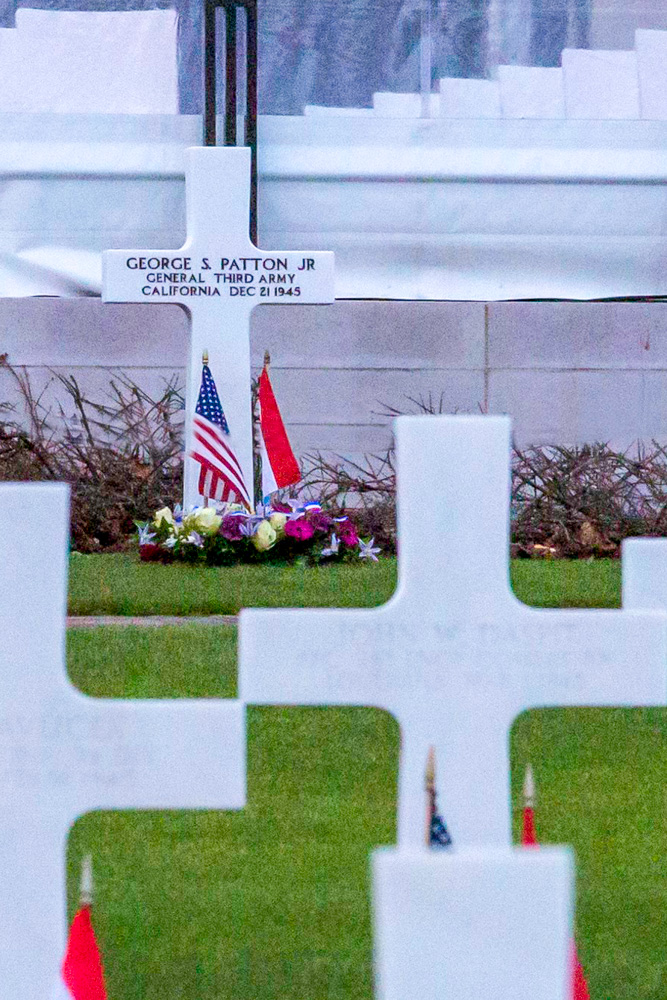
Originally he was buried per his wish with the rest of the men but tourists trampled the grounds so he was moved to better control the crowds and protect the grounds.
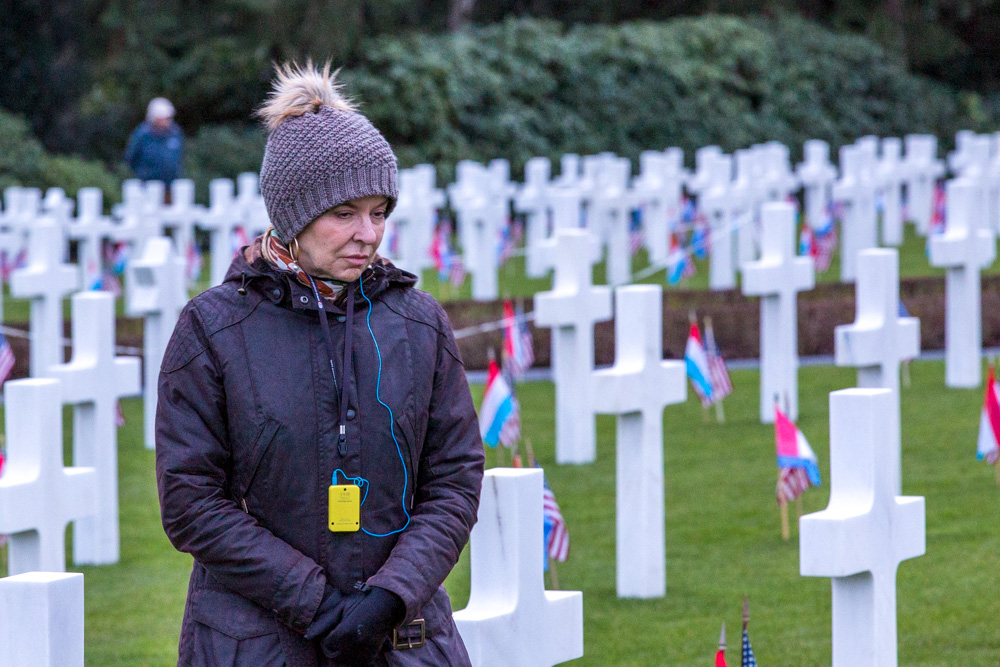
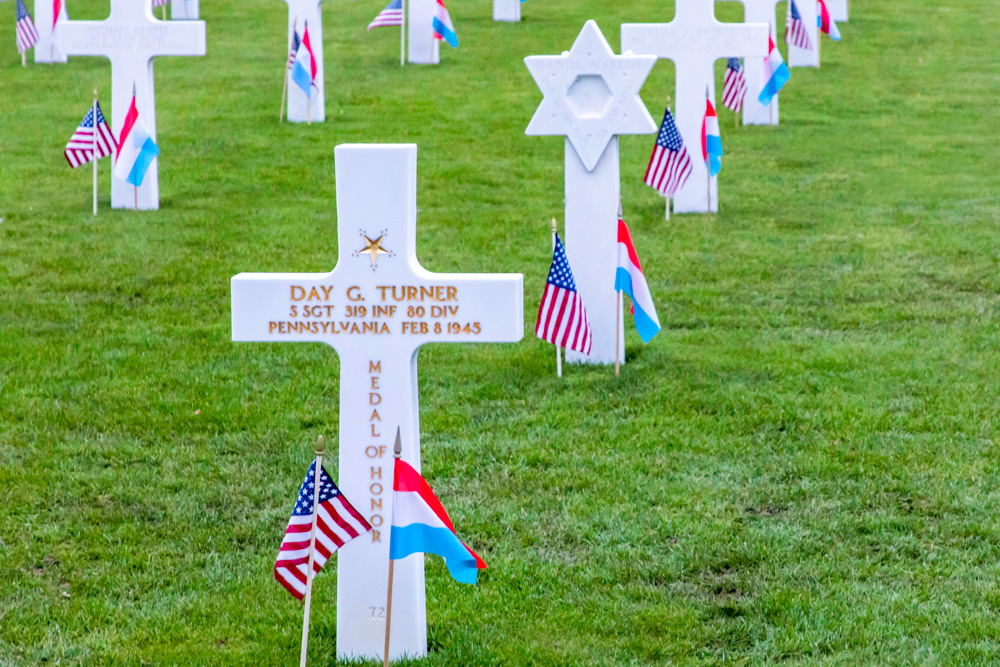
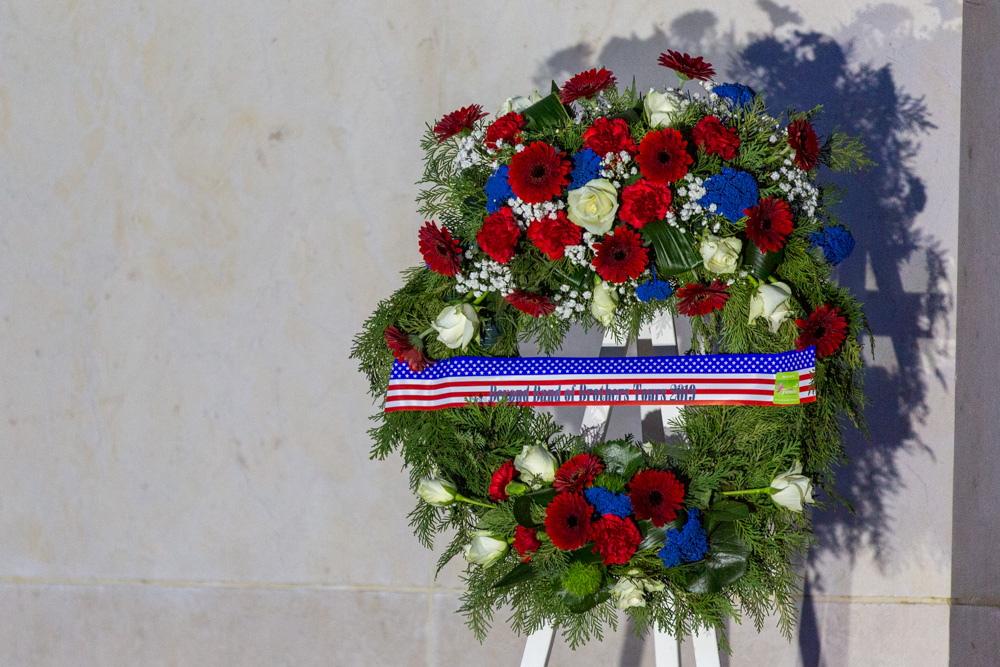
Besides the wreath there was a ceremony where we placed the wreath on a stand outside the chapel and we participated in the taps ceremony lowering the U.S. flag.
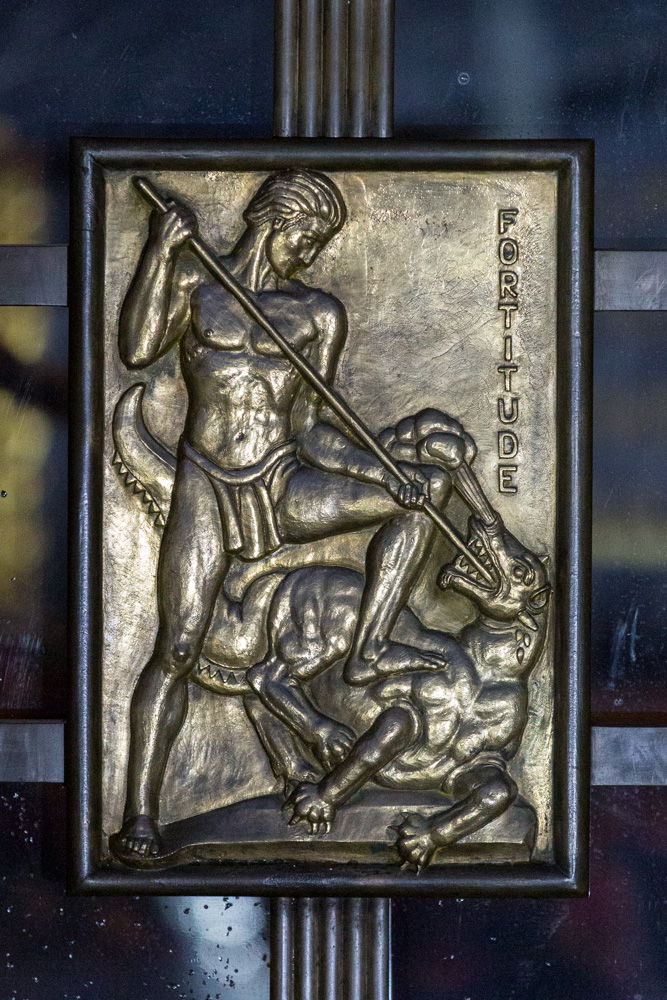
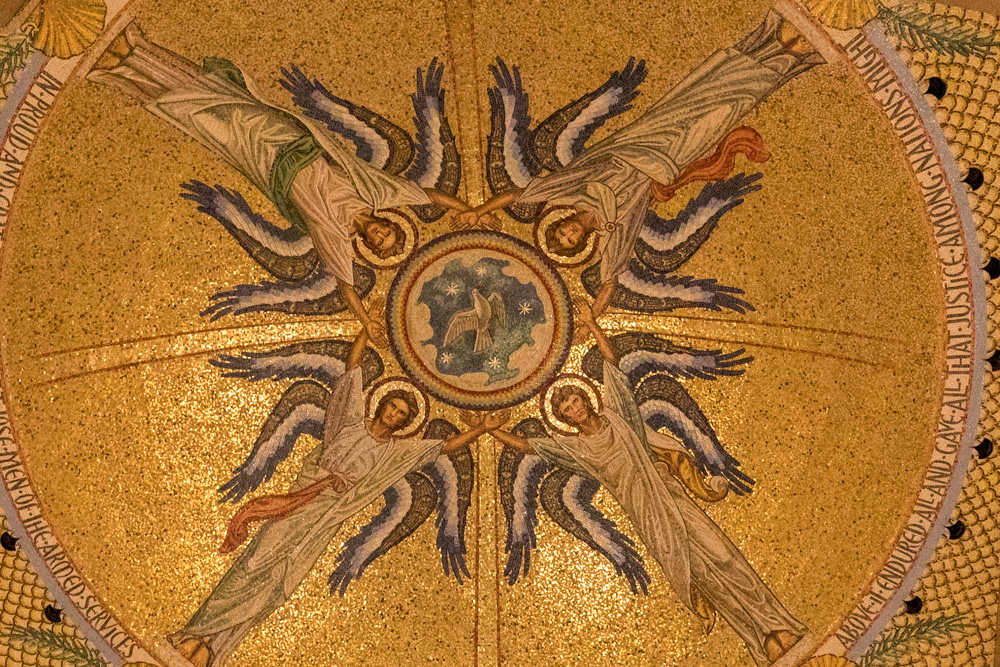
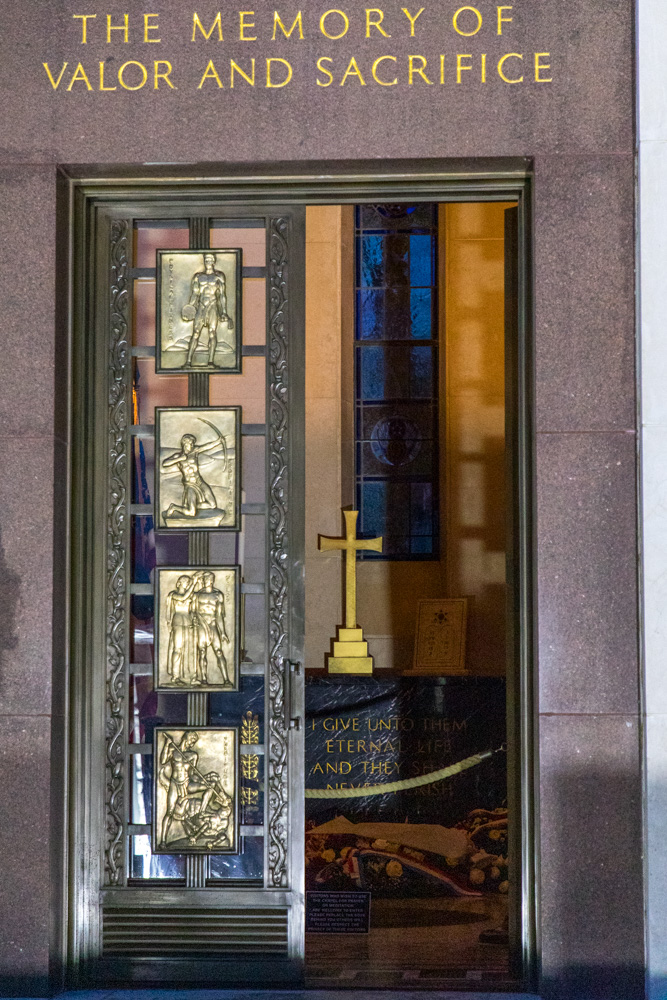
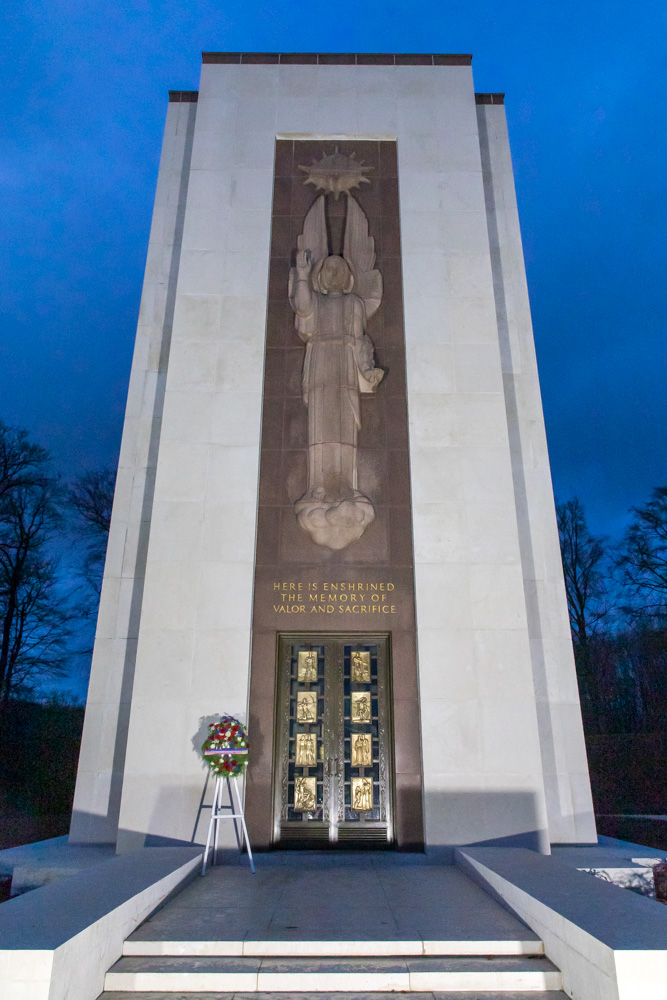
It was a long day - we had a 2-hour bus ride back and watched the movie Patton - or slept.